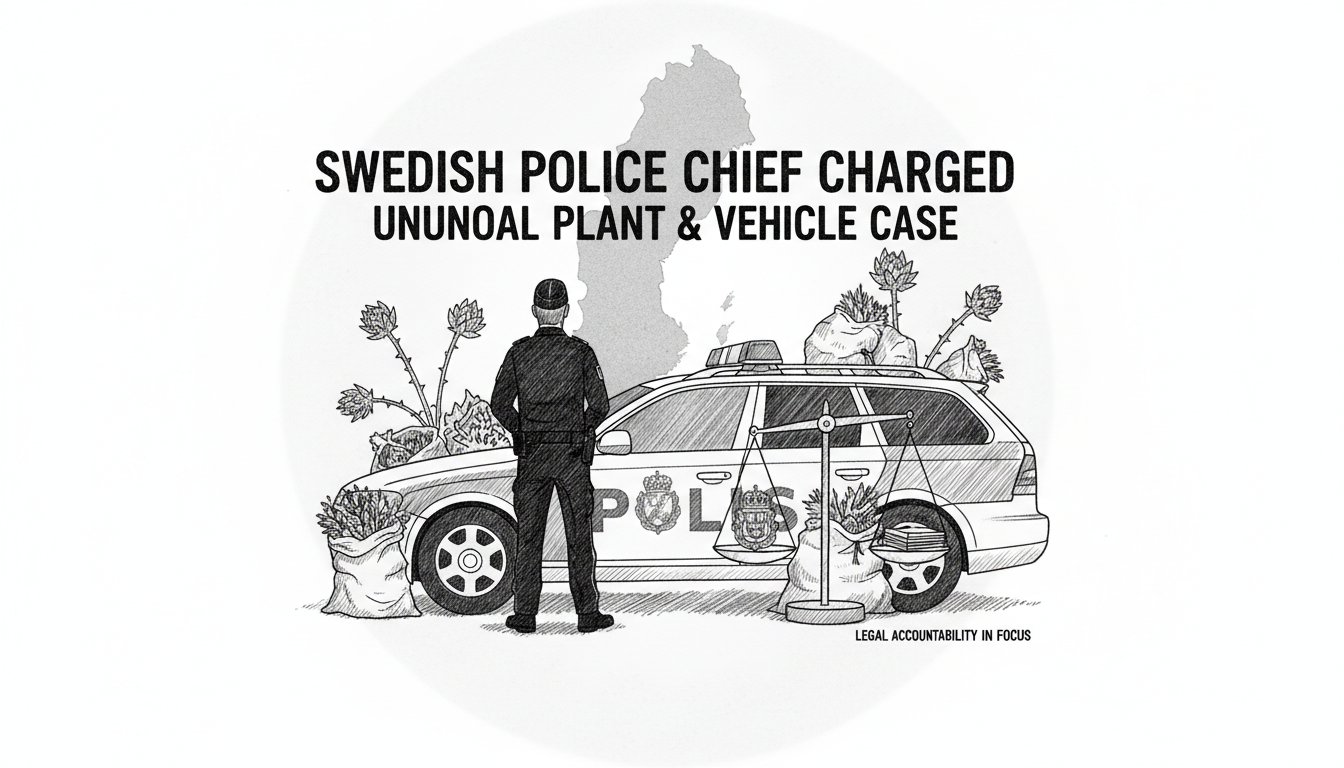A senior Swedish police official finds himself at the center of an unusual legal case that has captured national attention. Jan Håkansson, the police chief of Västmanland region, faces charges for allegedly stealing plants from a flower shop and misusing a police vehicle.
The case dates back to late spring when Håkansson reportedly visited a flower shop in Enköping, a picturesque town west of Stockholm known for its historic center and annual flower markets. According to court documents, he allegedly took two perennial plants valued at 398 kronor (approximately $38) without payment.
During the same weekend, prosecutors claim Håkansson improperly used an official police car for personal purposes. The police chief denies both charges of petty theft and unauthorized vehicle use. The case now moves to Uppsala District Court for trial.
What makes this story particularly noteworthy in Swedish society is the defendant's position. As police chief, Håkansson represents law enforcement authority in his region. His case raises questions about accountability and standards for those in positions of public trust.
Sweden maintains high expectations for its public officials, with transparency and integrity being core values in the country's administrative culture. The case comes amid ongoing national discussions about police conduct and public confidence in law enforcement.
Ulf Johansson, Håkansson's superior, will testify at the upcoming trial along with other witnesses. The court proceedings will examine whether the actions constituted criminal behavior or might represent administrative matters better handled internally.
For international readers understanding Swedish society, this case highlights several important aspects. Sweden's legal system treats all citizens equally before the law, regardless of position or status. The special prosecutor's office handling the case demonstrates the country's commitment to independent oversight of public officials.
The relatively small value of the allegedly stolen plants might surprise some observers. Under Swedish law, theft remains theft regardless of the amount involved. The case shows how Sweden's legal system maintains strict standards for public officials' conduct.
As the trial approaches, many in Sweden's law enforcement community watch closely. The outcome could influence how police conduct is reviewed and what standards apply to officers' personal behavior while representing their positions.
This case also reflects broader Swedish societal trends where transparency and accountability in public office remain paramount. The equal application of law to all citizens, including those in authority positions, forms a cornerstone of Sweden's democratic system and contributes to the country's high levels of public trust in institutions.

